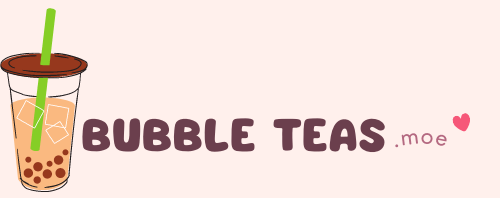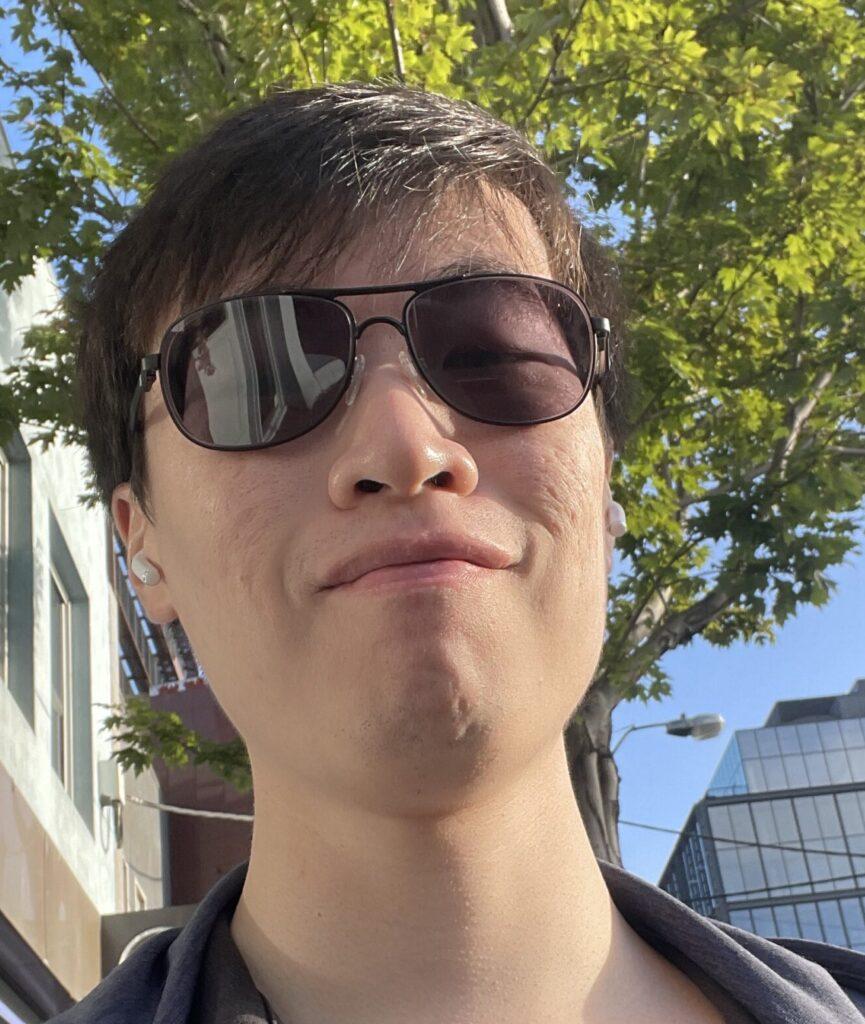If you’re a follower of Islam, you may be wondering whether bubble tea, also known as boba tea, is halal or haram. Bubble Tea is a popular refreshment around the world, with many boba shops popping up in various cities. However, it’s important to ensure that the ingredients used in bubble tea are halal if you’re sticking to a strict halal diet.
The main ingredient of boba tea is tapioca pearls, which are usually boiled and used as a topping. Other common toppings include jelly, popping boba, and flavorings like condensed milk. Some bubble tea recipes also call for gelatin, a thickener made from animal products, which is considered haram in Islam. If you’re making bubble tea at home, it’s important to ensure that the ingredients are halal.
Since many bubble tea shops now offer halal bubble tea, made with halal ingredients, and have obtained halal certification to ensure that their store-bought bubble tea is suitable for Muslim consumers. Some of the common halal ingredients used in bubble tea include brewed tea, milk, fruit syrups, and plant-based milk substitutes like almond or coconut milk. Green tea and black tea are also commonly used as the tea base in bubble tea, and are considered halal unless they are infused with haram ingredients.
Understanding Halal Certification for Bubble Tea
Halal means “permissible” or “lawful” and it refers to the dietary laws followed by Muslims across the world. Halal is an Arabic standard, the food and drink must be free from any haram (forbidden) ingredients and produced in accordance with strict guidelines. As boba tea contains several ingredients, it’s essential to understand whether they are halal or haram. Boba haram can be a devastating blow to Muslim boba drinkers looking to enjoy a cup of delicious Bubble Tea
Halal and Haram Status of Tapioca Pearls (Boba)
One of the main ingredients of boba tea is tapioca pearls, which are made from cassava root. Tapioca pearls are considered halal because they are made from a plant source and do not contain any haram ingredients. However, it’s worth noting that tapioca pearls are usually boiled in water that may have been in contact with haram ingredients. Therefore, to be considered halal, the tapioca pearls and all the utensils used to prepare them must be thoroughly cleaned before use.
Halal Status of Toppings and Flavorings
Most of the topping and flavoring options used in bubble tea are halal as they are made from fruits, syrups, or teas. However, some toppings like jelly and popping boba are made with gelatin, which is considered haram in Islam. Therefore, it’s important to check the ingredients list before choosing your toppings.
Halal Certification for Bubble Tea
Some bubble tea shops may have halal certification issued by the local halal authorities. Halal certification ensures that the ingredients used in the preparation of bubble tea are halal, and the preparation process meets the halal standards. However, the absence of halal certification doesn’t necessarily mean that the bubble tea is haram. You can always inquire about the ingredients and preparation process to ensure that it meets the halal requirements.
Making Bubble Tea at Home
If you are making bubble tea at home, you must ensure that all the ingredients you use are halal. You can use halal milk or almond or coconut milk, brewed tea, and halal flavorings to make bubble tea. You can also find halal tapioca pearls and popping boba in halal grocery stores.
Is Boba Tea Halal?
Boba tea can be halal if it’s prepared with halal ingredients and follows halal guidelines. Bubble Tea is made Halal normally but, some ingredients used in bubble tea may be considered haram, such as gelatin, which is used in some toppings. Therefore, it’s essential to check the ingredients list and the preparation process to ensure that it’s halal. Enjoy your bubble tea, and don’t hesitate to ask questions about its halal status!
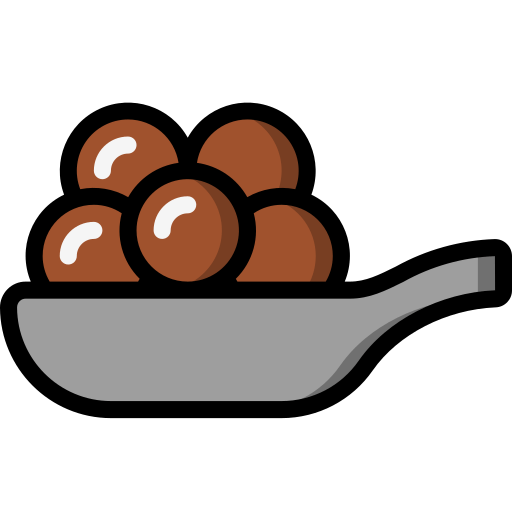
What is Boba? Can Boba be haram?
Bubble tea has many main ingredients such as tapioca pearls, which are made from the starchy cassava root. The pearls are usually boiled in water, creating a chewy texture. Some boba shops also offer regular boba, which is made from gelatin, a common haram ingredient.
Bubble tea, or boba tea, is made with halal ingredients, making it a suitable beverage for those who follow a strict halal diet. However, it’s essential to make sure that the ingredients used in bubble tea are halal-certified to ensure that the beverage is entirely halal.
If you’re making bubble tea at home, be sure to use halal ingredients, such as brewed tea, almond or coconut milk, and halal-certified condensed milk. It’s also crucial to check the halal foods status of the toppings you use, such as popping boba and jelly.
While bubble tea is considered halal, some toppings used in the beverage may be haram, such as gelatin-based toppings like jelly. It’s best to avoid these toppings and stick to halal-certified tapioca pearls or fruit-based popping boba.
Boba is halal as long as it’s made with halal ingredients. It’s crucial to check the halal status of all the ingredients used in bubble tea to ensure that the drink is entirely halal. With that said, it’s vital to note that the halal status of bubble tea may vary depending on the ingredients and preparation methods used.
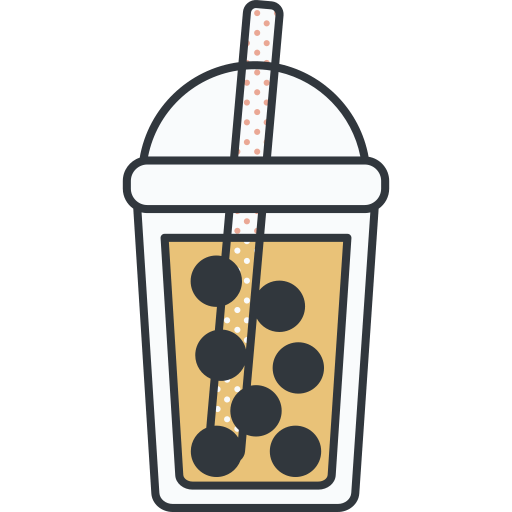
Common Boba Ingredients, Boba Tea Halal or Haram?
Bubble tea, also known as boba tea, is a popular drink that originated in Taiwan and has since become an international sensation. If you’re wondering whether bubble tea is halal or haram, it’s essential to know the ingredients that go into it.
The ingredients in bubble tea can vary depending on the type of bubble tea and the store that makes it. However, some common ingredients that are typically used to make bubble tea include:
- Tea base: Black, green, or Thai tea is brewed and used as a base for most bubble tea drinks.
- Tapioca pearls: Tapioca pearls, also known as boba, are typically boiled and then mixed with syrup to give them flavor. These tapioca balls are halal normally but make sure to ask or check with the counter staff.
- Milk: Milk, condensed milk, or alternative milk such as almond or coconut milk is often used to make milk tea, a popular type of bubble tea.
- Flavoring: Flavored syrups or fruit purees are used to add sweetness and flavor to bubble tea.
- Toppings: Popular toppings include jelly, popping boba, and other toppings made from cassava root. Some stores may also add gelatin-based toppings, which consumers should be careful with if they follow a strict halal diet.
Ingredients of Bubble Tea Halal Status – What makes Boba (Bubble Tea) halal in Islam?
Boba tea, also known as bubble tea, originated in Taiwan and has quickly become a popular drink worldwide. However, followers of Islam may be wondering if this trendy beverage is halal or haram.
When it comes to bubble tea, the halal status depends on the ingredients used to make it. The type of tea base, topping, flavoring, and milk are all key factors to consider.
The main ingredient of boba tea is often tapioca pearls, which are boiled and made from cassava root. Tapioca pearls themselves are considered halal, as they are made from a root vegetable and are not derived from animals.
The milk used in the tea may be a concern for some Muslims. Milk may come from non-halal sources, and some tea shops may use condensed milk, which can contain gelatin made from animal bones. However, many boba shops offer almond milk or coconut milk as alternatives, which are considered halal.
The toppings used in boba tea, such as jelly, popping boba, or fruit, can also be a concern. Some jelly and popping boba contain gelatin, which is haram in Islam as it is derived from animal sources. However, many boba shops use vegetarian-friendly options without gelatin.
It’s important to note that not all boba teas are made with halal ingredients, and the responsibility falls on the consumer to make an informed decision. To ensure halal status, always ask about the ingredients of the bubble tea or select shops with halal certification.
If you’re making bubble tea at home, be sure to use halal ingredients. It’s easy to make boba pearls with tapioca flour and brown sugar, and many recipes use brewed tea, natural flavorings, and non-dairy milk alternatives.
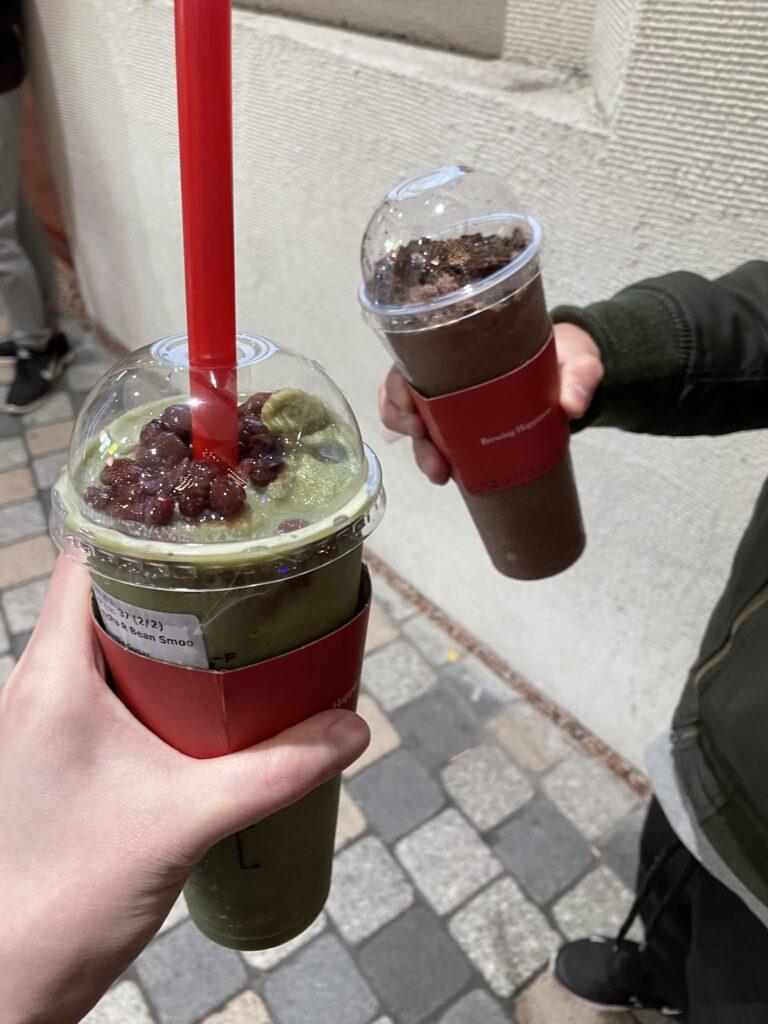
Halal Boba Brands
If you’re following a strict halal diet, you may be wondering if you can enjoy a refreshing glass of bubble tea. You may have heard concerns about gelatin in the tapioca pearls or other haram ingredients in the flavoring or toppings. However, not all bubble tea is created equal, and thankfully there are several halal boba brands you can choose from. Here are some options for halal bubble tea:
Gong Cha
Gong Cha is a popular bubble tea chain that has locations all over the world. They offer several flavors of bubble tea, with a choice of black, green, or Oolong tea base, and can customize the sweetness level. Gong Cha guarantees that their drinks are made with halal ingredients and are halal certified.
CoCo Fresh Tea & Juice
CoCo Fresh Tea & Juice is another popular bubble tea chain that has locations worldwide. They offer a variety of tea options, including fruit tea, milk tea, and fresh tea. CoCo Fresh Tea & Juice has a halal certification for their ingredients, products, and stores, ensuring that their drinks are in compliance with Muslim dietary laws.
Koi Thé
Koi Thé is a Taiwan-based bubble tea chain that has locations throughout Asia. They offer a wide variety of tea drinks, including fruit teas, fresh teas, and milk teas. Koi Thé uses halal-certified ingredients and adheres to strict halal guidelines to ensure that their drinks are safe for Muslim consumption.
Sharetea
Sharetea is a well-known bubble tea chain that originated in Taiwan and has since spread to other countries. They offer a range of tea drinks, including fresh tea and milk tea. Sharetea guarantees that their drinks are made with halal ingredients and have some halal-certified branches.
It’s worth noting that there may be other halal bubble tea shops as well, so you can always do your own research to find halal boba brands in your area. If you’re making bubble tea at home, look for halal-certified ingredients such as tapioca pearls made from cassava root, and avoid using gelatin or other haram toppings. By being mindful of the ingredients in your bubble tea, you can still enjoy this popular drink while adhering to Muslim dietary laws.
Cross-Contamination Prevention to Ensure Boba Halal
If you’re wondering if boba tea is halal or haram, the answer lies in the type of ingredients used and how they’re handled. While tea itself is considered halal and a popular drink in many Muslim countries, the toppings and flavorings used in bubble tea can be a cause for concern.
When making bubble tea, it’s crucial to ensure that the ingredients are halal and free from haram or questionable substances. Tapioca pearls, the main ingredient of boba tea, are usually boiled in water, but some recipes call for the use of gelatin or cassava root. Gelatin, unless it is derived from halal sources, is considered haram in Islam. Cassava root, on the other hand, is considered halal, but must be harvested and processed in a halal manner.
Jelly and popping boba, two of the most popular toppings used in bubble tea, can also be a source of concern for Muslims. Jelly is often made with gelatin and is therefore haram unless it is specifically labeled as halal. Popping boba, which are fruit-flavored balls filled with fruit juice, may contain non-halal gelatin or other haram ingredients. It’s important to check the ingredients label and ask the tea shop staff if these toppings are halal-certified or not.
When it comes to flavoring, the type of milk used in milk tea can be another concern. Condensed milk, which is a common ingredient in bubble tea, is typically made with cow’s milk and therefore halal. However, some tea shops may also offer almond or coconut milk as substitutes, which are also halal but can lead to cross-contamination if they’re not stored and handled separately from other ingredients.
To ensure that bubble tea is halal, it’s important to use halal ingredients and follow proper cross-contamination prevention protocols. Some bubble tea shops may also offer halal-certified drinks, but it’s still important to inquire about the ingredients and preparation methods to ensure that they align with your dietary practices.
Consumer Responsibility To Find Out if Bubble Tea Halal or Haram
As a consumer, your responsibility is to find out the halal status of your bubble tea before consuming it. Boba tea is also known as bubble tea and is a popular tea-based drink that originated in Taiwan. It comes in different flavors and often contains toppings such as jelly, popping boba, or tapioca pearls.
While boba drinks are widely available in tea shops and cafes, it’s important to ensure that the ingredients used are halal. As a follower of Islam, consuming haram ingredients is not allowed. That’s why it’s essential to check the halal certification of the store you buy bubble tea from.
Topping such as jelly, popping boba, and other add-ins may contain gelatin made from animal sources or cassava root. Gelatin derived from haram ingredients such as pork is considered haram in Islam. It’s best to inquire about the ingredients of the toppings before adding them to your tea.
The main ingredient of boba tea is tapioca pearls, which are usually boiled in water and then mixed with sugar syrup. However, some stores may use condensed milk or other non-halal flavorings that may contain haram ingredients. Therefore, it’s important to ask the tea shop about the ingredients used in their bubble tea.
If you’re making bubble tea at home, you’re responsible for ensuring that the ingredients used are halal. Using halal milk and sweeteners such as almond or coconut milk instead of condensed milk is one way of ensuring your boba tea is halal.

Boba Enjoyment for All, Enjoy Your Halal Bubble Tea!
While it can be confusing to determine the halal status of bubble tea or boba tea, the general consensus is that it is halal. Bubble Tea has become a huge fad for young Muslims and it’s important to always know the main ingredients used in bubble tea, such as brewed tea and milk, are not considered haram in Islam. However, it is important to ensure that the ingredients used in the bubble tea are halal-certified and do not contain any haram ingredients, such as gelatin or non-halal flavorings.
Tapioca pearls are the signature topping used in bubble tea. While tapioca pearls are made from cassava root, which is a halal ingredient, it is important to ensure that they are made using halal-certified processing methods. Some bubble tea shops may also use jelly or popping boba as toppings, which should be checked for halal certification.
If you are making bubble tea at home, it is important your ingredients must be halal. This is the responsibility of the person making it as bubble tea are naturally halal drinks if made properly with halal tea ingredients.
Most boba or bubble tea shops are not halal-certified, but many use halal ingredients. Since bubble tea shops, such as Gong Cha, offer halal-certified options those are the main recommendations to go. Gong Cha Halal status has made it fairly popular with the younger Muslim drinkers and the movement is sure to grow. Additionally, make sure the ingredients are from Taiwan where many of the ingredients used are halal.
